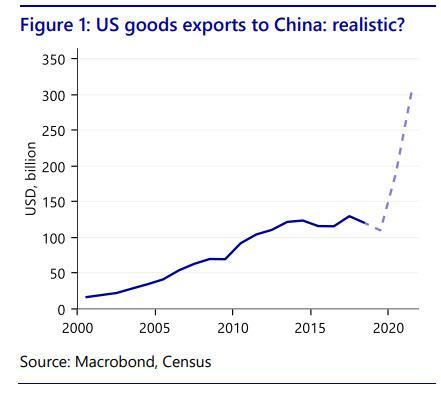State-Backed Economist Says China Must Delay Trade-Deal Commitments
Remember when Larry Kudlow said that President Xi had pledged to “meet [China’s] obligations” under the ‘Phase 1’ trade pact, outbreak be damned, and that negotiations for ‘Phase 2’ were “completely separate” from the outbreak?
Unsurprisingly, the SCMP confirmed on Monday that this probably isn’t going to happen. Odds are, China will need to delay its commitment to purchase an additional $200 billion in American goods and services, even as Beijing ends restrictions on importing American agricultural products like poultry and soybeans. Two weeks ago, rumors that China would seek “flexibility” were the earliest indication that the regime was already weighing what to do.
Now, in an obvious trial balloon, a state-backed economist is urging Beijing to invoke ‘force majeur’.
Fortunately for Beijing, the two sides included a ‘force majeur’ clause in the deal that read: “In the event that a natural disaster or other unforeseeable event outside the control of the parties delays a party from timely complying with its obligations under this agreement, the parties shall consult with each other.”
However, few expect the US to accept the delay without some kind of negotiation: Xu Qiyuan, a researcher at the China Finance 40 Forum (and a state-backed economist in Beijing), said he believes China should request to postpone the implementation of the purchase plan “in an appropriate manner” right away.
According to the SCMP, Xu’s comments about missing the deal quotas were part of a mounting consensus among international trade economists that the outbreak has made meeting the quotas impossible.
One week after the nation was supposed to get “back to work”, most of China’s economy remains shuttered. Even the factories that have reopened are operating well below capacity. A survey by the American Chamber of Commerce in Shanghai released on Monday saying that almost 80% of American-owned factories in China haven’t been able to staff production lines.
Though the details of what exactly would be purchased remain opaque, the media claimed back in January that China had agreed to an $80 billion increase of manufactured goods includes purchases of autos, auto parts, aircraft, agricultural machinery, medical devices, and semiconductors.
Whether or not this ends up being a ‘dealbreaker’ for the US and China, some have pointed out that the deal was never all that realistic. One Rabobank economist recently pointed out that for Beijing to reach its goal by end-2021, a chart of US exports to China would need to look like this for the next two years…
…it just doesn’t seem feasible.
Of course, any signs of trade-deal skepticism should be anathema to the equity rally that has so far remained largely on track even as the virus spread to more than 70,000 people.
Tyler Durden
Mon, 02/17/2020 – 09:30
via ZeroHedge News https://ift.tt/2SxH2Dw Tyler Durden
